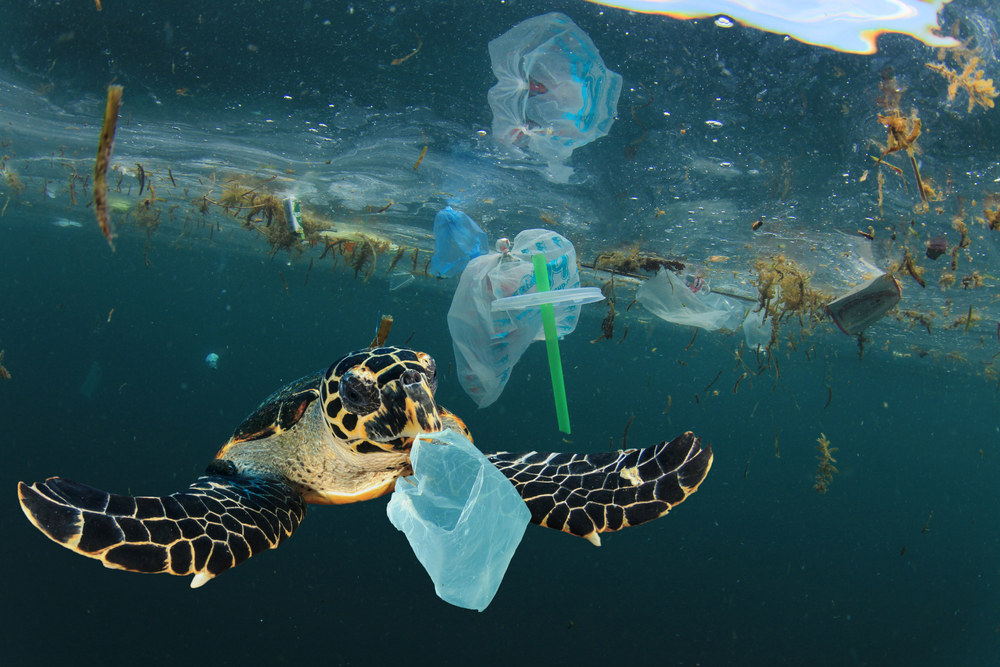A new partnership between major shipping companies launches a concerted effort to curb ocean plastic pollution, marking one of the maritime sector’s most ambitious environmental collaborations to date.
Founded by ocean impact organization Seven Clean Seas (SCS), the Maritime Association for Clean Seas (MACS) brings together leading carriers and maritime service providers with a shared mission to drive measurable reductions in plastic waste across the global shipping value chain.
Tom Peacock Nazir, founder and chairman of MACS, explains:
“With MACS, we are giving the maritime industry the tools it needs to make measurable progress against plastic pollution. We are working together, not alone.”
Sectors dependent on healthy oceans
The oceans are the backbone of global trade, moving nearly 90% of the goods transported around the world and supporting the livelihoods of more than 2 million seafarers. But they are under increasing pressure.
An estimated 14 million tonnes of plastic enters marine ecosystems every year, harming wildlife, damaging coastlines and weakening ocean resilience.
Although the shipping industry is only responsible for a small portion of this waste, the impact of improperly disposed of business waste, lost cargo, or mismanagement of quayside materials can be significant. Lightweight plastics such as pellets, films, and packaging are particularly prone to accidental leakage.
MACS aims to address these risks head-on by promoting better practices and accelerating innovation across the maritime ecosystem.
Based on global momentum
The launch of MACS marks a pivotal moment for ocean sustainability. This reinforces ongoing efforts under the International Maritime Organization’s (IMO) Plastic Marine Debris Action Plan and reflects broader global momentum towards collaborative solutions to marine plastic pollution.
As environmental scrutiny increases from regulators, communities and customers, shipping companies face increasing pressure to implement transparent and responsible waste management practices.
MACS positions itself as a platform where maritime stakeholders can come together to reduce plastic usage onboard ships, improve waste disposal, and impact a wide range of industries with even larger plastic footprints.
A unified approach to visible change
SCS provides the Alliance with extensive expertise to address the sources of plastics. The organization operates certified recovery projects that combine waste collection with fair employment and community development in some of the world’s most polluted coastal areas.
Through MACS, the maritime sector gains a structured framework for two core objectives: large-scale ocean plastic recovery and systematic waste reduction across the maritime value chain.
The association has outlined three priority workstreams for 2026.
Sustainable sourcing and use of materials Measuring and reducing waste generated by ships Improving waste reception and treatment at ports
These focus areas are directly aligned with IMO’s 2030 Action Plan. They will also contribute to SCS’s larger mission to collect 100 million kilograms of plastic and improve the lives of 200,000 people by the end of the decade.
Founding members reflect diverse marine landscapes
MACS was launched with founding members from across the industry, including Berge Bulk, X-Press Feeders, Bernhard Schulte Shipmanagement (BSM), and Britoil Offshore Services.
Together they represent bulk carriers, global feeders, offshore experts and leading ship managers, demonstrating widespread recognition that collective action is essential to combat ocean plastic pollution.
Each member brings practical experience in operational efficiency, environmental management, and data-driven transparency. Their involvement highlights the sector-wide willingness to go beyond isolated efforts and commit to shared standards that can have a large-scale impact.
Charting a cleaner path for global transportation
With the establishment of MACS, the maritime industry is demonstrating that protecting the oceans is no longer an option, but an integral part of the future of global trade.
The partnership aims not only to reduce ocean plastic waste, but also to demonstrate how cross-sector collaboration can transform established systems and drive change beyond shipping.
MACS is now inviting additional members from across the maritime value chain to join its mission and help build a cleaner, more resilient future for the world’s oceans.
Source link

